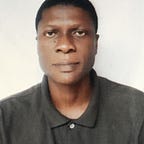Reacting to President Obama’s Mars vision op-ed
This article is a follow-on to my article “My MOOC platform dreams ..and Elon Musk’s Mars colony.”
President Obama just wrote an op-ed on going to Mars. I am so humbled and inspired, yet I am also a bit worried. Because he sees it as an ‘American’ thing, whereas I want to see our interplanetary existence (in Elon Musk’s vision) as a ‘humanity’ thing. We have many precedents of nationalism (or even regionalism) that haven’t benefited the rest of the world — the western colonization of most of the world, in particular, the partition of Africa and the recent space race between the USSR and the US. It is more likely that going by the current geopolitical situation on the Earth, the mission to Mars would become another space race between the US, China and maybe the EU; with the collaboration of a few multinational companies and likely result in a modern “partition of Mars” with individual winners and losers, but overall loss to Mars & Earth societies.
Elon Musk appears to have a vision for Mars that is bigger and more inclusive than probably Barack Obama’s or Xi Jinping’s.
And economic advantage, I think this is key. The roles that other people’s apart from China, the US and the EU play: by contributing economically, scientifically and socially will have an enormous impact on any allocation of future rights in our interplanetary existence. If left to a few governments or multinationals then we (society as a whole) will likely be mortgaging our interests to any interplanetary “rights” (property, intellectual, etc.). And so now is the right time for everyone to start investing in the future. We shouldn’t wait until a handful of governments and corporations have invested their resources and set it up because at which point we (everyone else) won’t be able to take our places at the table but settle merely for droppings.
In his op-ed, Obama referenced Apollo 17’s astronaut Eugene Cernan who said, “We went to explore the Moon, and in fact discovered the Earth.” As I also said my preceding article that is one reason for going to Mars “to be able to do better on Earth.” Which is reflected in the words of Douglas A. Comstock director of NASA’s Innovative Partnerships Program (IPP) commemorating the 40th anniversary of Apollo 11 astronaut Neil Armstrong’s becoming the first human to set foot on the moon. “Apollo continues to provide tangible benefits to the everyday lives of people in this country and around the world… As with Apollo, NASA’s ongoing efforts to push frontiers in space and aeronautics — from the International Space Station and Hubble Space Telescope to the Mars rovers that continue to probe the Red Planet’s mysteries — continue to yield advanced technologies that are making a significant impact here on Earth.” So thinking of Mars and interplanetary existence isn’t merely about Mars but also of the earth.
President Obama in his op-ed said, “This week, we’ll convene some of America’s leading scientists, engineers, innovators and students in Pittsburgh to dream up ways to build on our progress and find the next frontiers.” So when I think of a MOOC platform whose purpose isn’t merely giving grades and formal certificates, I think of extensive collaboration at global scales that brings the very best resources of humanity together in an “open format” to push for our greater good.
Obama also said “Getting there [to Mars] will take a giant leap. But the first, small steps happen when our students — the Mars generation — walk into their classrooms each day. Scientific discovery doesn’t occur with the flip of a switch; it takes years of testing, patience and a national commitment to education. President Eisenhower knew this: In 1958, he devoted significant resources to science and math education around the same time he created NASA. And it’s why I’m proud that we’ve passed significant milestones in STEM education. For the first time, more than 100,000 engineers are graduating from American schools every year, and we’re on track to accomplish my goal of training 100,000 excellent new STEM teachers in a decade.”
I see a MOOC platform as one way to bring together, educate and create solutions for students and teachers not only in STEM (science technology engineering and math) but also in other disciplines law, political economy, environment, arts, etc; who working together push boundaries, break limits and build a much more egalitarian and better world(s) based on cooperation and common purpose.
